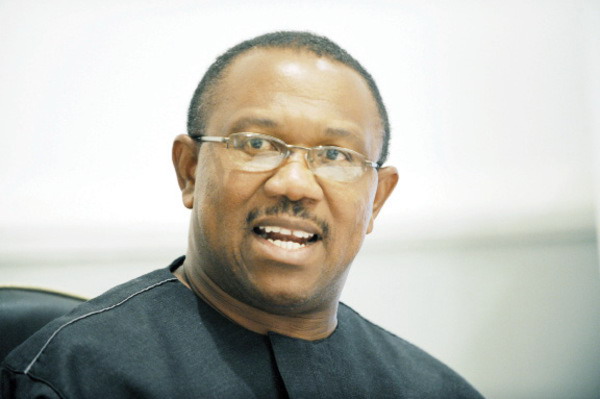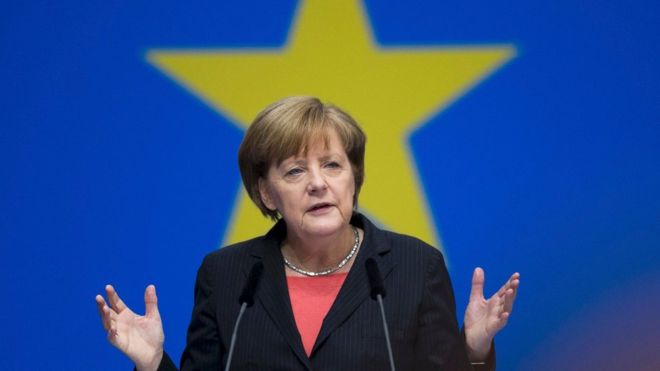Former Prime Minister of Great Britain and Northern Ireland, Tony Blair has said the departure of Britain will diminish the weight of Europe.
TheNewsGuru (TNG) reports the former Prime Minister, who is also the Executive Chairman of the Tony Blair Institute for Global Change, stated this in an article to EU leaders on Sunday.
The full article read: “I know politics too well, particularly European politics, not to know that you will come to an agreement on Brexit. But you should do so understanding the risk you are running and the danger you are courting for the whole European project.
“If you think it is a bad deal but better than the alternative of no deal, realise at the same time: the British PM does not have the agreement of the British people, the British parliament or even significant parts of her cabinet for it. And those who most ardently advocated “leave” even say they would prefer staying in the EU to leaving on these terms. If you think it settles the issue; it doesn’t.
“I ask you: be prepared to offer a way out if we are prepared to reconsider.
“The magnitude of the decision I know you accept. At a time when the politics of America are uncertain and the rise of China no longer a prediction but a fact, Britain’s departure will diminish the weight of Europe, upset its political balance, damage its single market and deprive both of us of the maximum influence over world affairs when we have never needed that influence more.
“You will agree but say: what choice do we have? It is Britain that has decided to leave. I understand that. I have watched you watch us these past 30 months. Whereas Brexit has occupied every waking moment of British politics, it has often barely featured in yours. It has been met with bewilderment at the way a country renowned for its common sense, decisiveness and savvy has become defined by indecision and flights of fancy.
“The magnitude of the decision I know you accept. At a time when the politics of America are uncertain and the rise of China no longer a prediction but a fact, Britain’s departure will diminish the weight of Europe, upset its political balance, damage its single market and deprive both of us of the maximum influence over world affairs when we have never needed that influence more.
“You will agree but say: what choice do we have? It is Britain that has decided to leave. I understand that. I have watched you watch us these past 30 months. Whereas Brexit has occupied every waking moment of British politics, it has often barely featured in yours. It has been met with bewilderment at the way a country renowned for its common sense, decisiveness and savvy has become defined by indecision and flights of fancy.
“What can be negotiated and what can’t is and always has been clear except to the British leadership. It has been often said in Britain that Europe has failed to respond reasonably to British proposals. You know the reality, which is that you have offered Britain a variety of different options. We can stay in the single market like Norway. Leave it and have a free trade agreement like Canada. Be in the customs union like Turkey. Be partially in the single market with a zero tariff customs arrangement like Switzerland. And of course, our deal would be a bespoke British deal which might combine aspects of the others.
“But all these models share one thing. To the extent that you are part of the economic structures of Europe, you abide by Europe’s rules. You are a rule-taker not a rule-maker. And if you’re not part of them, as with Canada, then your access to the market is not the same as those who are part of it. This is why the British position throughout the negotiation has been flawed. The government famously used to claim we would leave the single market but still retain the same benefits as those in it. This always was impossible.
“So finally, with the Chequers proposal, the PM chose an option of staying in the single market, but just for goods. And she accepted that this would mean agreeing to have in British law all existing European regulation and abiding by future regulation unless and until we decided to depart from it and therefore left the market. But to appease the Brexiteers, the option was heavily camouflaged by language which suggested we would retain independence from European regulation when obviously we wouldn’t.
“You didn’t agree to that proposal because you weren’t sure what it meant. Meantime, the PM’s internal political problems got worse. In any event your immediate concern is the withdrawal agreement and the Irish question.
“The PM agreed to a backstop that means the whole UK remains in the customs union until a technological solution is found. But such a solution must be to the satisfaction of both sides, and this gives Europe a veto. This caused outrage amongst both the Conservative Brexiteers and the DUP.
“So effectively you decided that you would permit more camouflage around the Irish border question but keep intact your veto. Then to ease the PM’s path to a deal, you agreed to a political declaration whose language is now so vague that it could mean any one of those options above. This is an artifice based on a misguided political fix I promise you we will all regret.
“The Brexit people think it’s a betrayal. The remainers like me think it is completely pointless. The British people are naturally confused by it all. But once they know it is keeping us tied to Europe but losing our say, it will be deeply unpopular.
“The cabinet Brexiteers disagree only on tactics with their colleagues who resigned. It is the opposite of what the people who voted Brexit were promised. It renders meaningless the meaningful vote commitment of the government. And it will plunge us all into years of uncertainty as post-March 2019 the fight about future arrangements continues.
“Know all this as you make this “deal”.
“There is a way out. Parliament votes down this mess. You step forward with an offer which deals with the principal British anxieties about Europe which, other than those of the Brexit fanatics, are also European ones, especially around immigration, and we go back to the British people.
“Too much is at stake. Our destiny and yours. It is not too late”.
The article is titled: “Tony Blair to EU leaders: Giving Us a Way Out Will Save Both Britain and Europe”.

